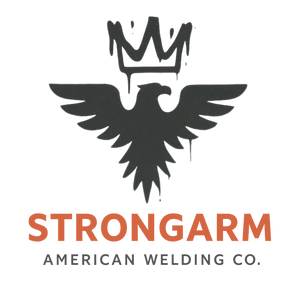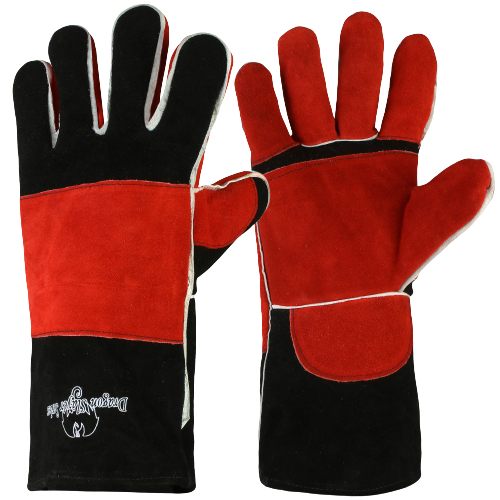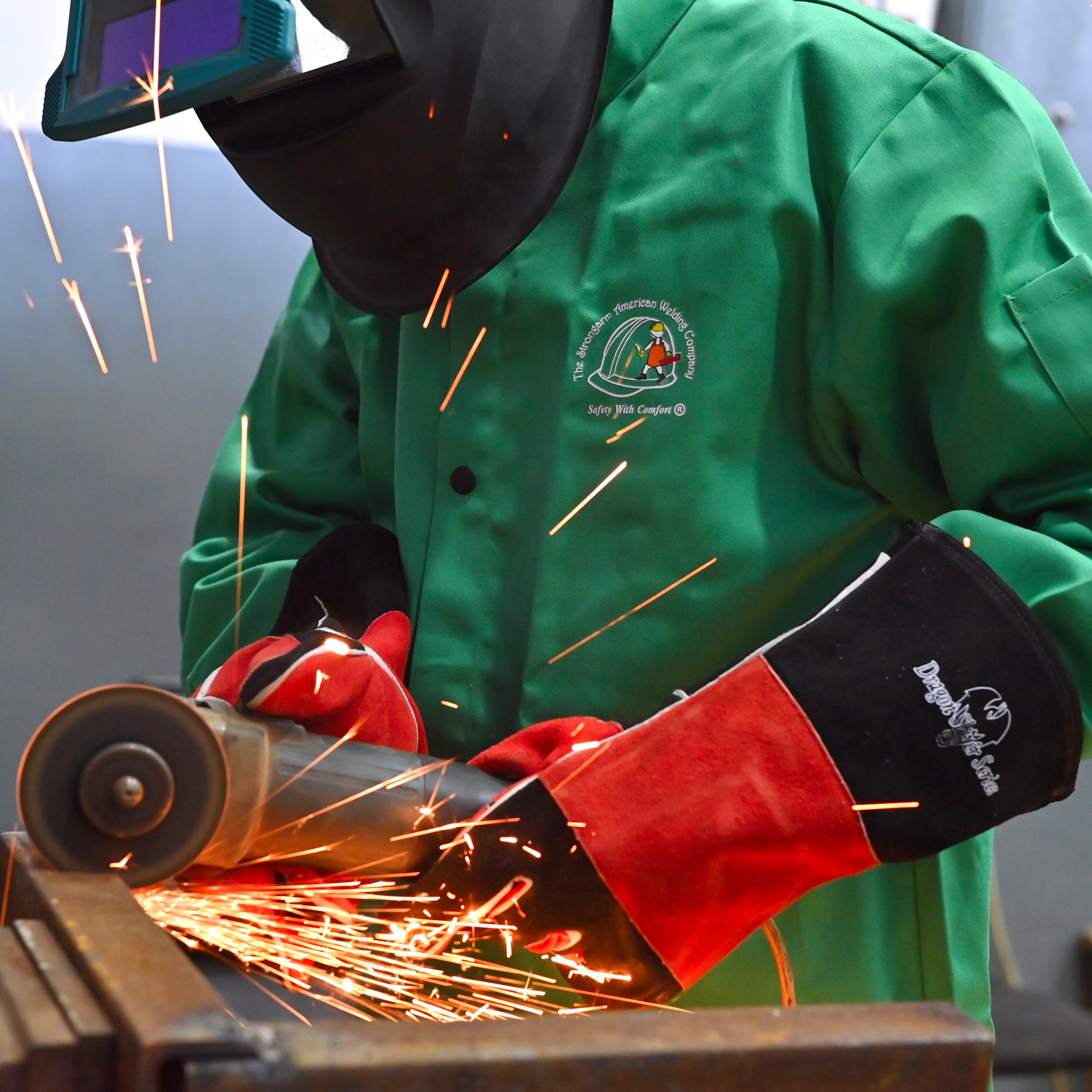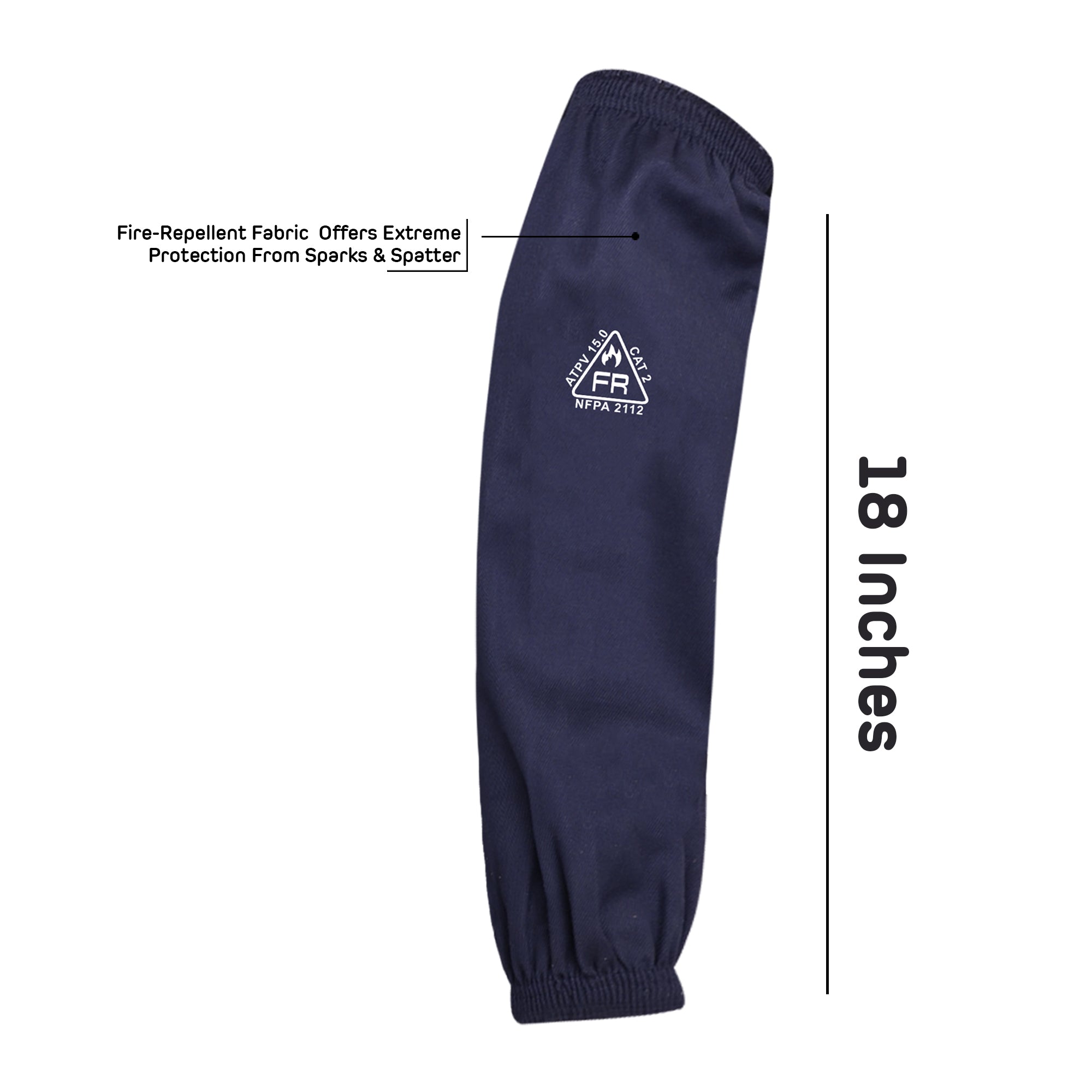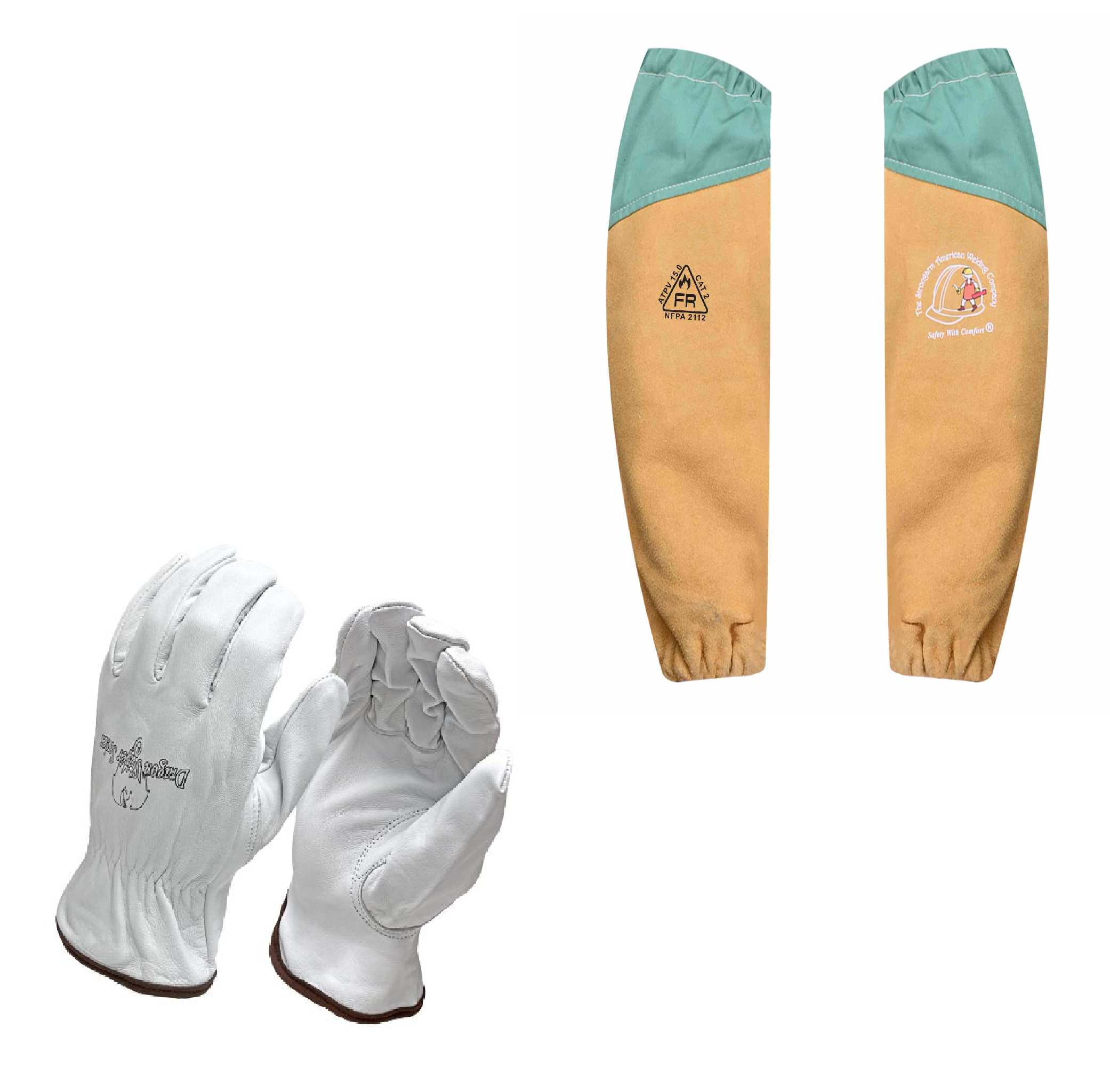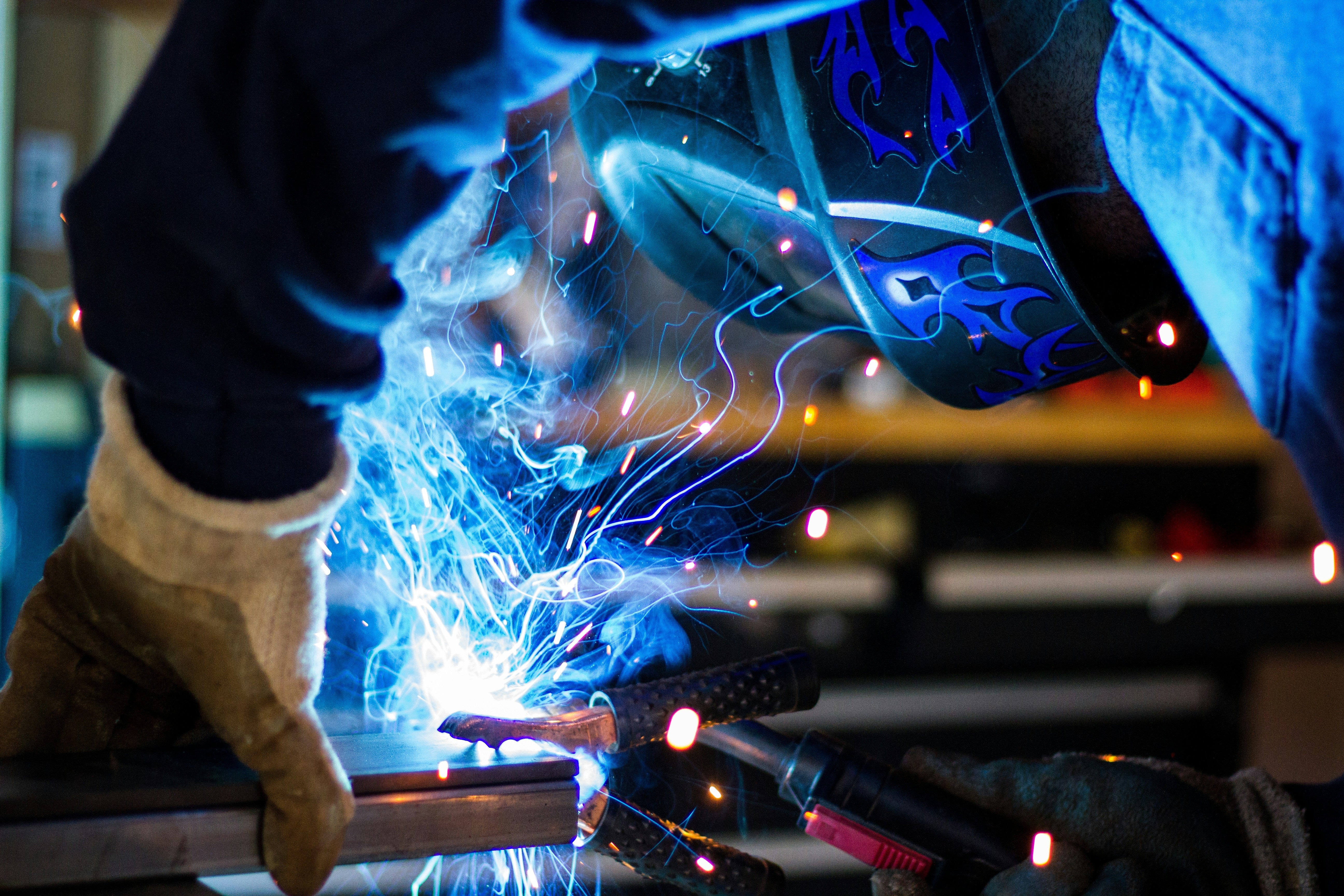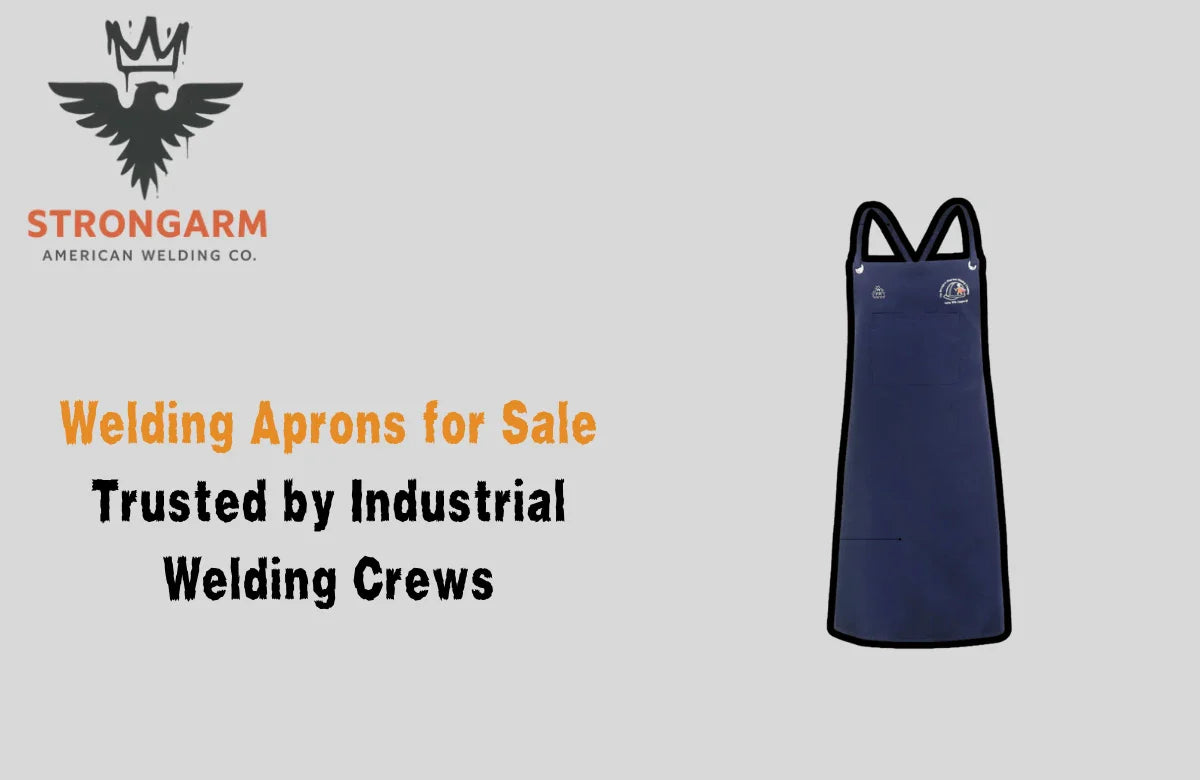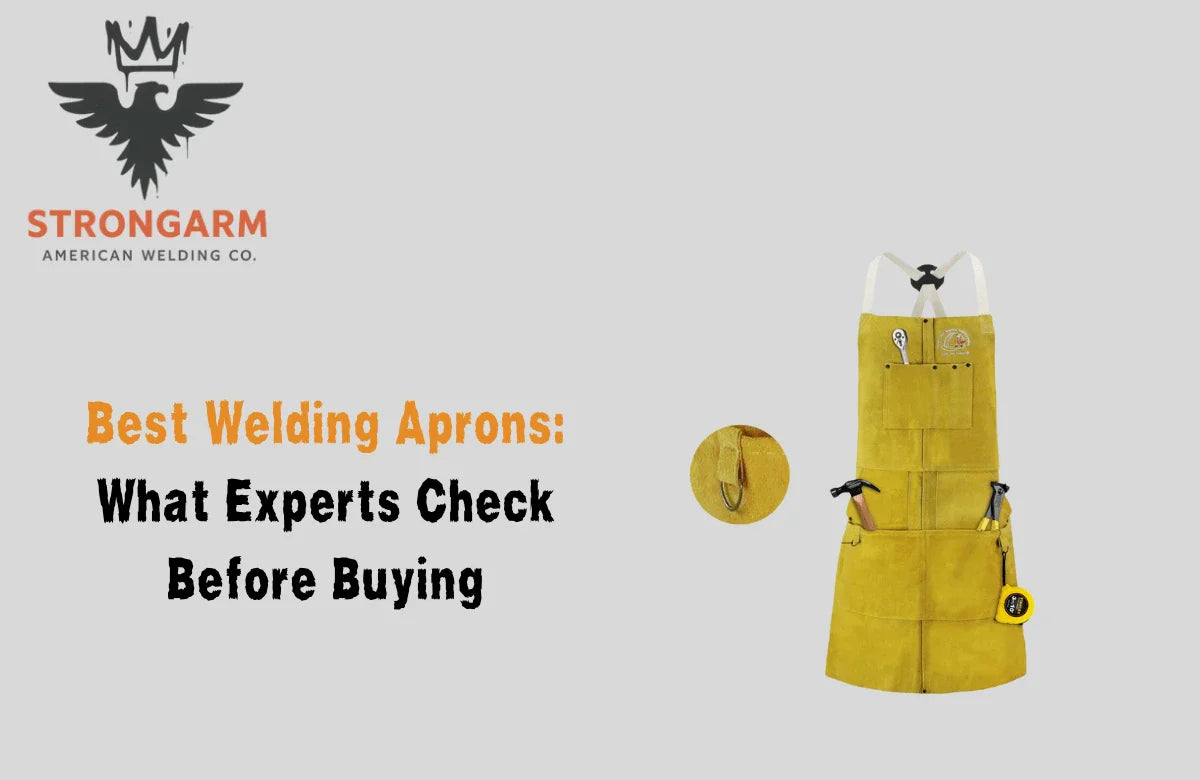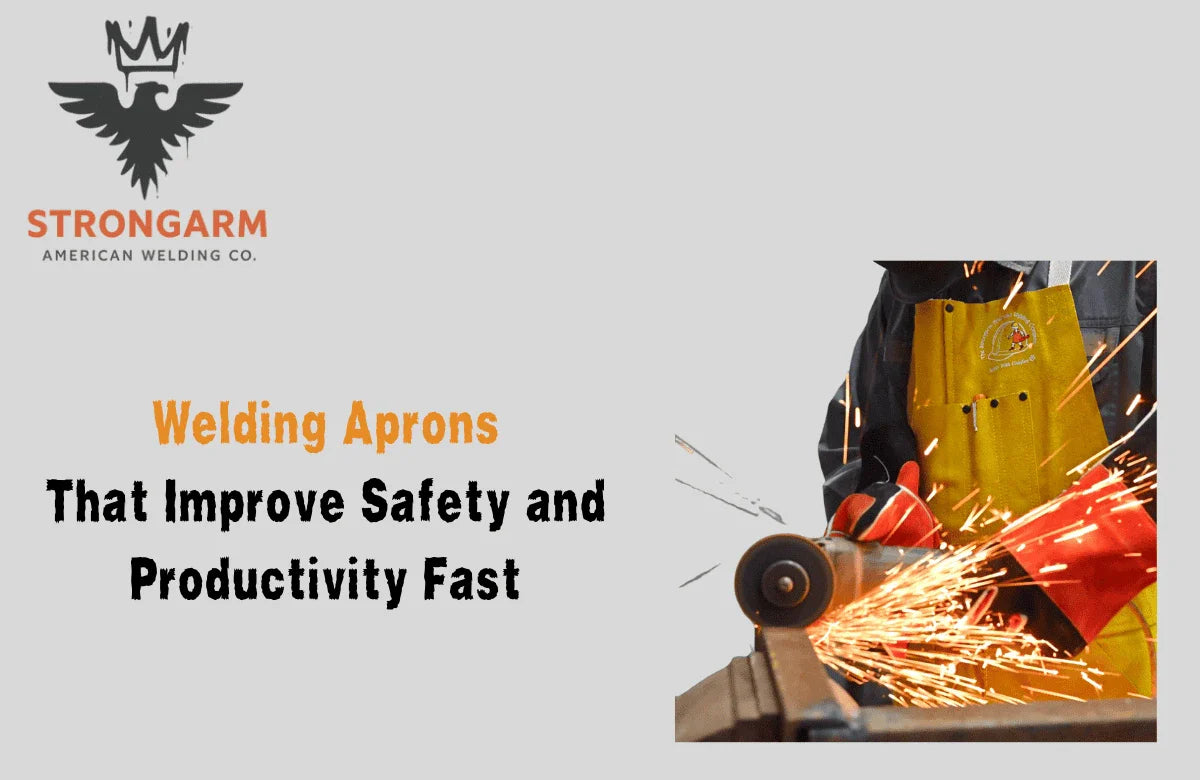When it comes to welding, protection is paramount. Two common options for protection against sparks, heat, and potential hazards are welding sleeves vs full aprons. But which one is the better choice for your specific tasks and needs? In this article, let’s find out the intricacies of welding sleeves and full aprons, comparing their features, pros and cons, and providing guidance on when to use each.
Welding is a precise craft that needs skill and careful safety measures. When you're welding, it's important to wear the right protective gear. There are two main choices: welding sleeves and full aprons. Both are meant to keep you safe from sparks, heat, and burns, but they each have special features. When you need to pick between welding sleeves vs full aprons, it depends on what kind of work you're doing.
Welding Sleeves
While welding sleeves offer excellent protection, there are instances where you require greater freedom of movement for your arms. This is where welding sleeves prove invaluable. Offering protection against heat and sparks, these sleeves allow comfortable mobility. Moreover, their design ensures a cooler wearing experience, particularly beneficial for those working in hot weather conditions.
How to Choose the Right Welding Sleeves
Sleeve Length
It's important to make sure that the welding sleeves cover your arm from your wrist to your upper arm. This allows you to move your shoulders without any restrictions. To find the correct length, you can measure your arm.
Heat Protection and Material
Consider the amount of heat you'll be exposed to and the type of work you'll be doing. Different materials provide varying levels of protection. You have options like Kevlar, leather, or cotton sleeves.
Types of Welding Sleeves
Kevlar Sleeves
Kevlar sleeves provide the highest level of heat protection. They're also lightweight and comfortable to wear.
Leather Sleeves
Leather sleeves like our Premium OG-3 Leather FR Welding Sleeves 18” are sturdy and can withstand heat effectively. However, they're not as simple to wash as other materials.
Cotton Sleeves
Cotton sleeves are extremely comfortable and allow your skin to breathe. However, they offer less protection against heat compared to Kevlar and leather options.
Welding Apron
Welding aprons act as large shields, protecting your body while you work with hot materials such as welding or grinding. They keep your chest, stomach, and legs safe from sparks and heat, too. These aprons are made from sturdy materials like tough leather or thick cloth that won't easily catch fire. So, when you're wearing a full apron, you've got more coverage and protection all around your body while you're welding.
How to Choose the Right Full Welding Aprons
Full aprons are designed to provide extensive coverage and protection during welding and similar tasks. Here's a closer look at what you should know about them:
Cover a Lot
Full aprons offer comprehensive coverage, shielding your torso and upper legs from sparks, heat, and debris. They're ideal for tasks where you need all-around protection.
Durability Matters
The longevity of your full apron largely depends on how well you take care of it. Proper maintenance, such as regular cleaning and storage, can help extend its lifespan and ensure continued protection.
Types Of Welding Aprons
Leather
Leather is a popular choice for welding aprons due to its durability and heat resistance. It provides excellent protection against sparks and heat, making it ideal for heavy-duty welding tasks.
Fire-Resistant Cotton
Fire-resistant cotton aprons offer decent protection against heat and flames at a more affordable price point. While not as durable as leather, they're lightweight and can be easily washed for maintenance.
Waxed Canvas
Waxed canvas aprons are lightweight and flexible, making them suitable for tasks that don't involve high heat or sparks. While they're not fire-resistant like leather, they offer good protection against stains and debris.
Pros and Cons of Welding Sleeves vs Full Aprons
Welding Sleeves
Pros
Targeted Arm Protection: Welding sleeves focus on keeping your arms safe from sparks and heat, offering specific protection where you need it most.
Enhanced Mobility: These sleeves are lightweight and flexible, allowing you to move freely without feeling restricted during welding tasks.
Lightweight and Breathable: Welding sleeves are made from breathable materials, ensuring comfort even during extended wear in hot conditions.
Cons
Limited Coverage: While welding sleeves protect your arms well, they leave other parts of your body exposed, such as your torso and legs.
May Require Additional Gear: Since welding sleeves only cover your arms, you may need to wear additional protective gear like a welding apron for full-body protection.
Full Aprons
Pros
Comprehensive Frontal Protection: Full aprons offer complete coverage for your torso and upper legs, providing thorough protection against sparks, heat, and debris.
Versatile Usage: Besides welding, full aprons are handy for various tasks like woodworking, painting, and gardening, thanks to their extensive coverage.
Shields Clothing: These aprons not only protect your body but also shield your clothing from stains and dirt, keeping your attire clean during messy tasks.
Cons
Lack of Arm Coverage: While full aprons cover your front well, they typically don't protect your arms as effectively, leaving them exposed to potential hazards.
Bulkier Design: Compared to welding sleeves, full aprons are bulkier and may feel somewhat cumbersome, especially during tasks requiring a lot of movement.
When to Use Welding Sleeves vs Full Aprons
Knowing when to use welding sleeves versus full aprons depends on the level of protection you need for your specific task.
Use welding sleeves when you want to protect your arms from sparks, heat, and other hazards. They're great for tasks that involve a lot of arm movement or when you need targeted protection for your arms.
Opt for a full apron when you need comprehensive protection for your entire front, including your torso and upper legs. Full aprons are ideal for situations where you face hazards from all directions and need complete coverage to stay safe.
Heat Resistance in Full Apron Gear
When you're working with heat, it's important to wear gear that can handle it without getting damaged. Welding sleeves are made from tough materials that can handle sparks and heat. They're designed to keep your arms safe from flying sparks and the hot temperatures that happen during welding.
Whereas full aprons cover more of your body, including your chest and legs. They're made from strong materials that protect you not just from heat but also from fire. The materials in full aprons, such as fire-resistant fabrics, synthetic blends, or sturdy leather, are chosen because they can resist heat and fire, keeping you safe while you work.
Durability of Welding Sleeve and Apron
Both welding sleeves and full aprons can last a long time if you take care of them. Regular cleaning and maintenance, especially for leather gear, are essential to ensure they remain durable and provide reliable protection while you work.
Welding sleeves can last a long time, especially if you look after them properly. If you clean and take care of leather ones regularly, they'll stay strong and keep you safe for a while. Regular cleaning and maintenance can make them last even longer, ensuring they continue to provide reliable protection.
Full aprons, especially the ones made from leather, are super tough and can handle rough conditions. A leather welding apron is built to withstand the challenges of your work environment. Just like with sleeves, keeping leather aprons clean and well-conditioned helps them last longer, ensuring they remain durable and keep you protected over time.
Comfort in Welding Sleeves and Aprons
Feeling comfy in your protective gear is important for doing your job well. Welding sleeves are lightweight and simple to wear, making them easy to move around in while you work. Plus, you can adjust them to fit just right, ensuring they stay snug and comfortable throughout your tasks.
Full aprons come with padding to enhance comfort, giving you a cushioned feel while you work. Additionally, they're designed to let air circulate, which helps to keep you cool and comfortable even during long hours on the job.
Testimonials
John R. – Professional Welder (Texas, USA)
“Strongarm Welding aprons have completely changed the way I work. The leather quality is top-notch, and I feel safe even during high-heat projects. Worth every penny!”
Lisa M. – Fabrication Expert (Ohio, USA)
“I’ve used several welding sleeves, but Strongarm’s Kevlar sleeves are the most comfortable and protective. Lightweight, breathable, and tough — perfect for long shifts.”
David K. – Industrial Maintenance Technician (California, USA)
“Strongarm’s full welding apron offers outstanding coverage without restricting movement. The build quality and stitching are incredible — truly made for professionals.”
Frequently Asked Questions (FAQs)
1. Are welding sleeves or full aprons better for high-heat welding?
For high-heat tasks, full welding aprons made from leather or flame-resistant materials offer maximum protection for your torso and legs. However, Kevlar welding sleeves are great for arm-focused work where flexibility is key.
2. How do I maintain my leather welding apron?
Clean your apron regularly with a damp cloth, avoid harsh detergents, and condition it with leather oil to prevent drying or cracking. Proper care extends its durability and comfort.
3. Can I wear welding sleeves and a full apron together?
Yes! Many professionals pair welding sleeves with aprons for complete coverage — ideal for heavy-duty fabrication and industrial work.
4. What materials are best for welding sleeves?
Top materials include Kevlar, leather, and fire-resistant cotton, each offering a balance of comfort and heat protection. Kevlar provides the best resistance for prolonged exposure to heat and sparks.
5. Why choose Strongarm Welding gear?
Strongarm Welding is trusted across the U.S. for its premium craftsmanship, tested durability, and professional-grade safety gear. Our welding products are engineered for both safety and performance.
Conclusion
When it comes to welding sleeves vs full aprons, the right choice depends on your working environment and safety needs. Welding sleeves are ideal for light-duty tasks that demand flexibility and arm mobility, while full welding aprons offer superior protection for the torso, stomach, and legs — perfect for heavy-duty welding operations.
At Strongarm Welding, we understand that every welder’s job is unique. That’s why we design our welding safety gear — from heat-resistant sleeves to durable leather aprons — to deliver unmatched comfort, coverage, and protection. No matter your project, our premium-quality gear ensures you stay focused, productive, and protected throughout every weld.
